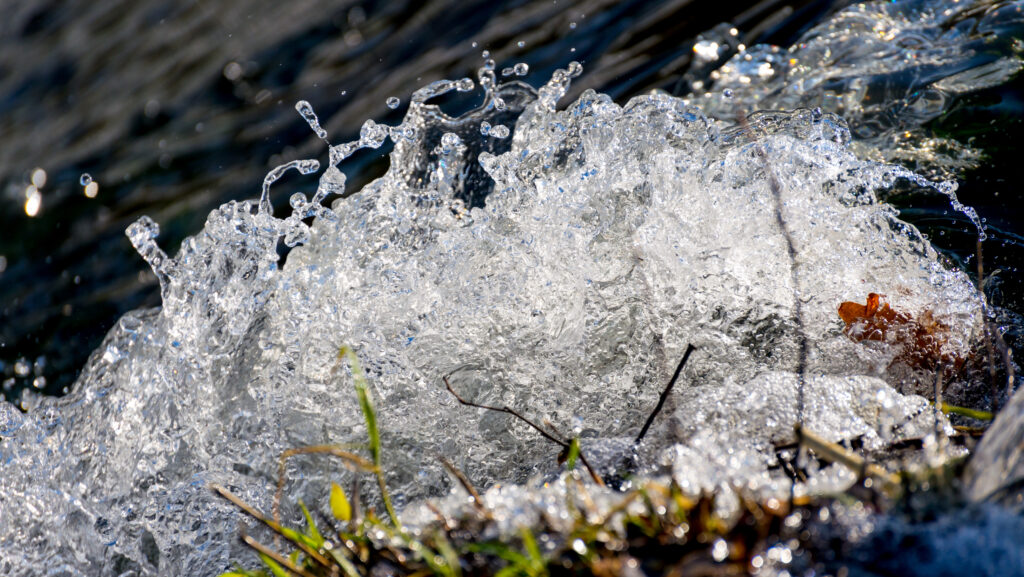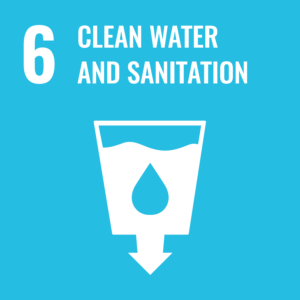HYGLO – Solutions for Securing Clean and Adequate Drinking Water
World Water Day was celebrated in March to increase awareness of the impact of water resources on economic productivity and social wellbeing. Theme for the year 2022 was groundwater.

Groundwater provides almost half of all drinking water worldwide. As the world’s population grows, land use and housing become denser, and climate change progresses, there is increased reliance and pressure on groundwater. For example, changes in precipitation patterns, longer drought periods, increased evaporation as temperatures rise, rising water levels, increased flooding and soil sealing, and changes in frost depth, snowfall and spring thaw all affect the recharge and quality of groundwater.
At the Geological Survey of Finland (GTK), we tackle the challenges brought on by climate change by providing comprehensive water management solutions that are in line with sustainable development. This means we conduct research on groundwater as well as on water management in mining environments. Our water solutions are also largely linked to geothermal energy, the disposal of nuclear waste, and water management in urban and industrial environments.
HYGLO – Pondering and Solving Groundwater Questions
In 2020, we launched the Hydrogeology and the Global Change (HYGLO) project, in which we adapt new research methods and produce new research data for groundwater questions related to the changing climate and respond to challenges presented by the global change by identifying the impacts on groundwater.
More than 70 of our specialists carry out the project under three work packages. In the first package, we test new research methods and develop new service concepts. In the second work package, we expand our international activities and develop hydrogeological research and the collection of groundwater data through new hydrogeological test stations and networking. The third package focuses on managed aquifer recharge (MAR) research and applications, and especially on better understanding of bank filtration processes.
So far, the project has developed and tested various natural tracers and groundwater age dating methods, as well as methods for studying interaction between surface water and groundwater. The Jänneniemi groundwater intake plant in Kuopio, Finland is one of the selected research areas. With Kuopion Vesi water works, we focus particularly on questions related to bank filtration. Knowledge of and expertise in risks associated with artificially recharged groundwater and bank filtration, as well as tools for risk management, are needed, because growing algal blooms, pharmaceuticals, microplastics and other emerging pollutants that end up in waterbodies, and changes in groundwater processes are already current global challenges, but their impact is expected to increase and observe in Finland also.
Our project is also engaged in cooperation with the Oulanka research station of the University of Oulu. At the research station, a study on climate and environmental change is in progress. It is an experimental study focusing on the impact of changing snow conditions on the environment and vegetation and our research will focus on the geological environment of the study site as well as hydrogeological processes.
In the future, we will establish more hydrogeological test stations in different types of geological and hydrogeological environments across Finland to support our groundwater research, while building national and international networks with universities, research organisations, water supply plants and other water management operatives. We will also increasingly focus on the development of hydrogeological modelling workflow and concepts related to water management in mining environments.
A Common Cause
Water resources are needed everywhere, and large-scale international research cooperation related to groundwater is required for the sustainable use and management of this valuable natural resource.
While we are developing groundwater expertise and research in Finland in the HYGLO project, we are also expanding the sector’s expertise to other geological and climate conditions. For example, managed aquifer recharge can be used to respond to the challenges of growing water demand in Finland and globally. GTK is conducting a project in Vietnam to improve the local capacity to conduct research and studies on managed aquifer recharge as part of sustainable water management.
Finland’s fresh water resources are mostly abundant and in good condition. However, our expertise should be developed further and shared with other countries to secure our common future – after all, water is one of life’s prerequisites.
The goal of managed aquifer recharge (MAR) is to produce groundwater similar to natural groundwater by infiltrating rainwater or surface water in a groundwater body without any water treatment or by pre-treating water as little as possible, thereby increasing the volume of water in aquifer. Managed aquifer recharge has been found to be a good method for the sustainable management of groundwater resources. When implemented correctly, managed aquifer recharge is an environmentally friendly, climate-proof, reliable and cost-effective way of securing year-round water supply in very different types of climatic conditions and hydrogeological environments.
Hydrogeology[2] is a natural science that studies groundwater, i.e. water found underground in rock and soil pore spaces and in the fractures of rock formations, and its movements, typically at a depth of less than half a kilometre. Hydrogeology is a multi- and interdisciplinary field of science, situated between hydrology and geology. In recent decades, questions related to environmental protection and concerns about the adequacy of clean drinking water have made hydrogeology an even more current field of science.
Global change refers to the integrating global economy, the impact of the use of natural resources, and climate change. Above all, changes in the climate, land use and socioeconomic and legislative systems threaten the sensitive ecological and social balance of the Arctic.
The geological environment is a system formed by soil, bedrock and groundwater.


Geological Survey of Finland: Solutions to Accelerate the Transition to a Sustainable, Carbon-neutral World
The Geological Survey of Finland (GTK) produces impartial and objective research data and services in support of decision-making in industry, academia, and wider society to accelerate the transition to a sustainable, carbon-neutral world. GTK employs more than 400 experts specializing in the mineral economy, circular economy, solutions related to energy, water and the environment, as well as digital solutions. GTK is a research institution governed by the Finnish Ministry of Employment and the Economy, operating in Finland and globally.
